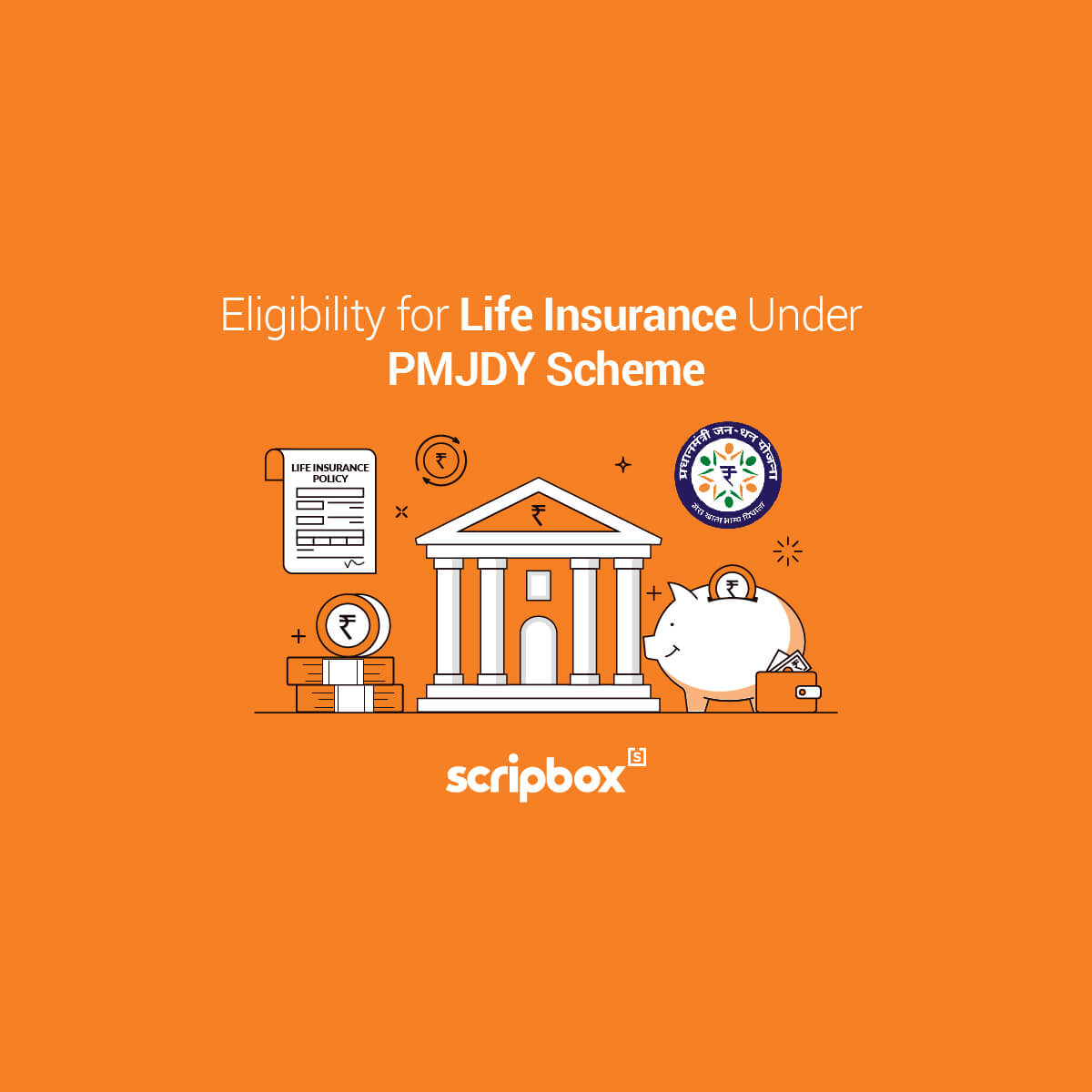What is Pradhan Mantri Yuva Yojana?
The Pradhan Mantri Yuva Yojana Scheme is the Ministry of Skill Development and Entrepreneurship’s flagship program. Through entrepreneurship education, training, capacity building, mentorship, and handholding, PMYY aims to create jobs. Apprenticeships in certain trades do not guarantee that learners will be entrepreneurially competent. As a result, skilling and entrepreneurship must operate in unison to complete the cycle.
The PM-YUVA Yojana also encourages social enterprises for inclusive growth and provides simple access to a support network for entrepreneurs. It gives young people easy access to an entrepreneurship support network of over 14 lakh people, allowing them to launch as many businesses as possible in five years (2016-17 to 2020-21).
The project will be implemented through a network of Entrepreneurship Resource and Coordination Hubs (E-Hubs). Nodal E-Hub, Delhi-NCR is responsible for ensuring on-ground implementation of the PM YUVA scheme in Delhi-NCR region. Mr. Manu Sakunia is the Nodal Manager of Nodal E-Hub, Noida.
Vision and Mission of the Pradhan Mantri Yuva Yojana (PMYY)
The scheme’s vision is to increase job creation by providing end-to-end entrepreneurship education, guidance, and mentorship to potential and existing entrepreneurs who want to establish or expand their businesses. The mission is to promote entrepreneurship as a viable alternative career path and to provide long-term mentorship support to aspiring and early-stage entrepreneurs.
Objectives of Pradhan Mantri Yuva Yojana
The scheme’s major goal is to inspire the younger generation while simultaneously preparing them for global competitiveness. During the Start-up India Scheme, it was discovered that many entrepreneurs had little knowledge of the industry or lacked the necessary skills to advance in the field. MSDE has created this training scheme to provide them with suitable supervision and education.
The initiative will be for young people who are educated but lack the necessary skills and knowledge to compete in the global marketplace. They will be able to grow more and faster after receiving training under the PMYY plan.
The award was created as part of the initiative to encourage young individuals under the age of 30 to contribute more to the nation’s entrepreneur ecosystem in a variety of ways. The scheme’s overall goal is to improve the economy of the country.
Features of Pradhan Mantri Yuva Yojana (PMYY)
Educate and equip potential and early stage entrepreneurs
- Create and distribute free entrepreneurship education to all residents using Massive Open Online Courses (MOOCs) and other online programs accessible via a Learning Management System (LMS).
- Create a system for evaluation and certification.
- Equip 3,050 institutions to deliver world-class entrepreneurship education programs: 2,200 Institutes of Higher Learning (Universities, Colleges, Premier Institutions, and AICTE Institutions including Polytechnics); 300 schools (10+2); 500 Industrial Training Institutes (ITIs); and 50 Entrepreneurship Development Centres (EDCs).
- Emphasis should be placed on the promotion of social entrepreneurship.
- Within-class debates and experiential learning (applications, fake businesses, internships) are also incorporated into MOOCs, which are all facilitated by selected and trained instructors in selected institutes.
- Development of The National Institute of Entrepreneurship and Small Business Development (NIESBUD), which is part of the Ministry of Skill Development and Entrepreneurship, has certified these student-centered courses (MSDE)
- Establish Institutes of Higher Learning (IHL): Colleges, Universities, and Technical Institutions
- Courses available at Higher Secondary (HS) Schools, Industrial Training Institutes (ITis) across the country
- Entrepreneurship Development Centres (EDCs)-50:NSDC Training Partners, NIESBUD and liE Partner Institutes, EDII Regional Centers, State Government Development Centers provide courses.
Connect entrepreneurs in enabling networks of peers, mentors, funds and business services
- Additionally, students get easy access to a robust network of peers, mentors, incubators, funds and business services through an online platform
- Create a “on-line market place” – a web-based platform that connects entrepreneurs with one another for peer-to-peer networking, as well as investors, financial institutions, and business services like legal, accounting, IT, and HR.
- Create a countrywide mentorship program for aspiring entrepreneurs.
- Create a nationwide network of incubators, accelerators, and lending institutions.
- Create a national business service provider network.
- Leverage Central Ministry and State/UT Government schemes and initiatives.
Support entrepreneurs through Entrepreneurship Hubs (E – Hubs)
- One National Entrepreneurship and Coordination Hub (E-hub), five Regional E-hubs, and fifty Nodal E-hubs administer the scheme.
- To coordinate and promote entrepreneurial development programs, create a National Entrepreneurship Resource and Coordination Hub.
- To organize and promote entrepreneurial programs at all levels, create regional, nodal, and entrepreneurship hubs.
- Create a cloud-based management information system that keeps track of entrepreneurs, project institutes, faculty, students, and outcomes.
- Factory on Wheels.
Catalyze a culture shift to encourage social entrepreneurship
- Elective courses in social entrepreneurship are available at over 440 institutions of higher learning.
- SEDPs (Social Entrepreneurship Development Programs) are offered in Social Entrepreneurship Development Centers and are targeted at developing social entrepreneurs (SEDCs)
- Using events, branding, and media, cultivate a culture of dynamic entrepreneurship.
- Encourage and support entrepreneurship research and advocacy.
- SC/ST and minority beneficiaries benefit from social entrepreneurship awareness programs.
- Monitoring the beneficiaries’ progress
Benefits of the Pradhan Mantri Yuva Yojana (PMYY)
- Under the PM-YUVA Yojana, the government gives vocational training and education to developing youth in order to help them start several businesses over a five-year period. The educational establishments under the PM-YUVA Yojana are expected to train between 5 and 7 lakh students. Students who participate in this program receive training that allows them to gain practical experience before they are hired.
- Students of Empaneled Institutes- Understanding entrepreneurship; Knowledge on Entrepreneurial Skills and preparing Project Report, Market Survey; opportunity to participate in State level and National Level Business Plan Competitions etc.
- Aspiring Entrepreneurs- Mentoring and Handholding Support in-Preparation of Business proposal; Support in Enterprise Registration; Market linkages; linkages to Business networks etc.
- Existing Early Stage Entrepreneurs- Mentoring and Handholding Support in- Financial Management guidance; expansion of product/ service and geographical outreach; increase in revenue etc.
Initiatives Under Pradhan Mantri Yuva Yojana (PMYY)
The following are the programs offered to various categories of institutes under the Pradhan Mantri Yuva Yojana (PMYY):
Institute of Higher Learning (IHL)
Students will be able to choose from six certificate programs offered by the Institute of Higher Learning. Faculty will enable these using this platform, with a heavy focus on peer learning and the creation of smart, collaborative student teams. The primary objectives are to motivate and inspire students to start businesses and proceed down the path of entrepreneurship, as well as to provide them with the hard skills needed to start and maintain a business. With assistance, networks, and platforms, help kids who have ideas. Orientation Course: 6 months, 30 hours per semester Other Advanced Courses: 40 hours every semester for a period of six months
Industrial Training Institutes (ITis)
Students will gain knowledge of fundamental components of starting a small business, such as inventory management, sourcing, bookkeeping, and financial discipline, as well as digital marketing, general administration, and barefoot managerial skills, through this course. The course assists students in leveraging their occupational skills and learning about various government assistance and funding programmes for starting their own business. The Foundation and Advanced Courses provide these opportunities. 15-hour foundation course. For three months, devote 1-1.5 hours every week. 60-hour advanced course. For 6 months, work 3-4 hours per week.
Higher Secondary (HS)
Schools Foundation and Advanced Courses will be provided at schools (10+2). The Foundation Course is an introduction to entrepreneurship in which students will learn how entrepreneurs think and act and become motivated to pursue entrepreneurship as a career. The Advanced Course will teach students the fundamental skills they’ll need to start and run their own business. 15-hour foundation course. For three months, devote 1-1.5 hours every week. 15-hour advanced course. For three months, devote 1-1.5 hours every week.
Entrepreneurship Development Centres (EDC)
EDC applicants will be able to create their own venture by applying venture creation knowledge and abilities to their field of specialisation after completing this course. Here, the National E-hub will offer modular courses for specific business skills such as inventory management, sourcing, bookkeeping, and financial discipline, digital marketing, general administration, barefoot managerial skills, and communication skills, among others, as determined by the National E-hub. The length of the course will be determined by the National E-hub in cooperation with the EDCs.
Social Entrepreneurship Development Programme (SEDP)
While forging relationships with relevant Partner Organisations (POs) of EDII, the Social Entrepreneurship will focus on Incubation Support, Social Entrepreneurship Development Programme (SEDP), Training of Trainers Programme (Ton), and Social Entrepreneurship Awareness Programme. The initiative will primarily focus on organising, identifying, and providing incubation support to aspiring social entrepreneurs, as well as knowledge development on social entrepreneurship at the regional and national levels. Aside from that, 440 institutes of higher learning have been approached with a proposal for a social entrepreneurship course module.
Role of State Governments in Functioning of PMYY
- State governments will be heavily involved in the Scheme’s implementation.
- On an annual rotating basis, two states are represented in the Project Steering Committee.
- States are encouraged to promote good educational institutions to join the project.
- The states are encouraged to connect the state government’s entrepreneurship program with the Scheme.
- A joint working group (JWG) will be formed in each state, led by the state’s Secretary of Industry.
- State Secretaries of Education, Higher Education, and Labor, as well as one or two representatives from each of the four types of Project Institutes JWGs, will meet biannually to set targets and assess the Scheme’s success in the state.
Who is Eligible for Benefit Under PMYY?
The following category of applicants are eligible for the entrepreneurship training and education under the Pradhan Mantri Yuva Yojana (PMYY):
- Students who are undergoing any training or have completed any training conducted by the Industrial Training Institutes (ITI’s)
- Students who belong to any unorganised sectors in the rural and/or urban areas in the country.
- Women entrepreneurs in the rural and/or urban areas in the country.
- Active entrepreneurs in the rural and/or urban areas in the country.
- Students who have either completed or are pursuing any courses including undergraduate programs, postgraduate or masters programs, PhD programs, degree and or diploma courses.
Activities for the Facilitators of the Education and Training Programs
- Training and process orientation for facilitators. Login to gain access to the course materials.
- Respond to class discussions and/or chat sessions as needed to moderate sessions. Allow for entrepreneurial training programs on campus.
- Within 24 hours, respond to student communications or questions.
- As directed by the course instructor, grade conversations, assignments, quizzes, and/or surveys.
- Provide students with useful comments on assignments and submit pertinent information based on the class’s performance.
- Recommend further MOOCs or go on to the next MOOC.
- Participate in weekly meetings or phone calls with the teacher, and coordinate with the National E-Facilitator Hub’s Support Team.
Activities for the Students of the Education and Training Programs
- On-line instruction. Login information has been assigned, as well as access to the course calendar.
- Notification of sessions through e-mail
- Start of the online session MOOC001
- Facilitator-led flipped session for MOOC001
- Take part in the quizzes and assignments.
- Upload findings based on class results, make recommendations for more MOOCs, or move on to the next MOOC.
- Provide meaningful comments on tasks to students and submit pertinent material based on class performance, recommend extra MOOCs, or go on to the next MOOC.
- Participate in weekly on-line meetings or calls with the teacher, and coordinate with the National E-Facilitator Hub’s Support Team.
- Entrepreneurship practice sessions on the Campus: Launch E-Cell Participate in Campus Company Programmes, Students Venture Mentoring Programme On-line E-Cell Programmes Interaction with Entrepreneurs Start up Internships
Discover More
- Pradhan Mantri Jan Arogya Yojana (PMJAY)
- Pradhan Mantri Vaya Vandana Yojana (PMVVY)
- Pradhan Mantri Suraksha Bima Yojana
- Saksham Yuva Yojana
- Samarth Scheme
- PMMVY
- Pradhan Mantri Awas Yojana (PMAY)
- PM Kisan Samman Nidhi Yojana
- Pradhan Mantri Kaushal Vikas Yojana (PMKVY)
- Pradhan Mantri Jeevan Jyoti Bima Yojana
- Multiplier Grants Scheme
- Ujala Scheme
- Pradhan Mantri Jan Dhan Yojana (PMJDY)
- Atal Pension Yojana (APY)
- Pradhan Mantri Shram Yogi Mandhan
- DDU-GKY
- Startup India Scheme
- Antyodaya Anna Yojana (AAY)
- Pradhan Mantri Adarsh Gram Yojana
- Aspire Scheme
- Pradhan Mantri Ujjwala Yojana (PMUY)
- Credit Guarantee Scheme For Startups
- Startup India Seed Fund Scheme
- Pradhan Mantri Yuva Yojana (PMYY)
- Pradhan Mantri Kaushal Kendra (PMKK)
- Stand Up India Scheme
- ECLGS Scheme
- Unnat Bharat Abhiyan
- Digital India Scheme
- Sankalp Scheme
- Samagra Shiksha
- Skill India
- Deen Dayal Upadhyaya Antyodaya Yojana (DAY)
- Credit Guarantee Scheme for MSE (CGSMSE)
- What is Pradhan Mantri Yuva Yojana?
- Objectives of Pradhan Mantri Yuva Yojana
- Features of Pradhan Mantri Yuva Yojana (PMYY)
- Benefits of the Pradhan Mantri Yuva Yojana (PMYY)
- Initiatives Under Pradhan Mantri Yuva Yojana (PMYY)
- Role of State Governments in Functioning of PMYY
- Who is Eligible for Benefit Under PMYY?
- Activities for the Facilitators of the Education and Training Programs
- Activities for the Students of the Education and Training Programs




























Show comments